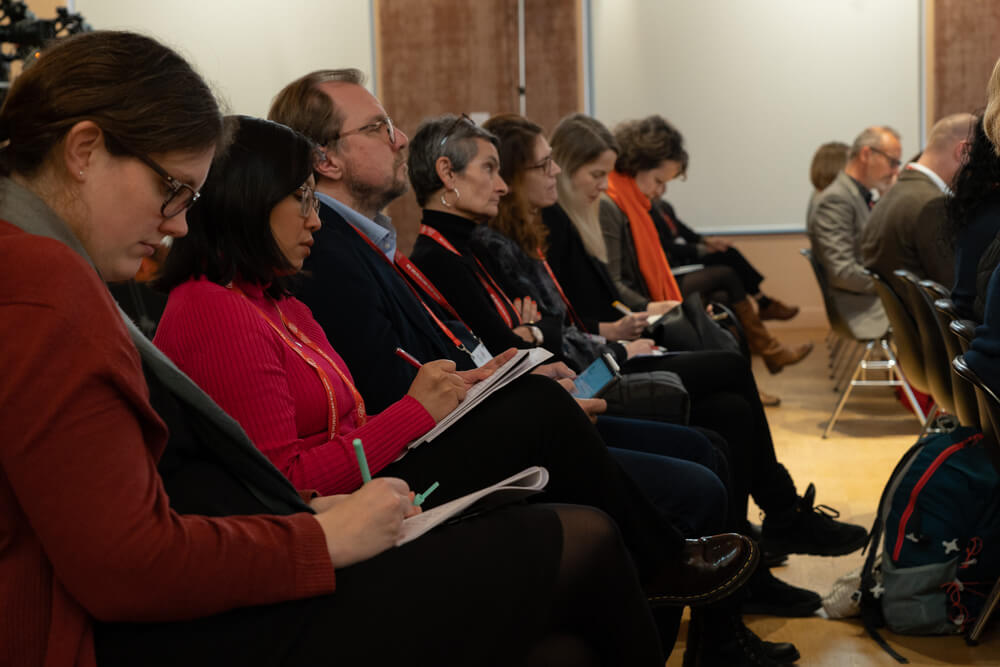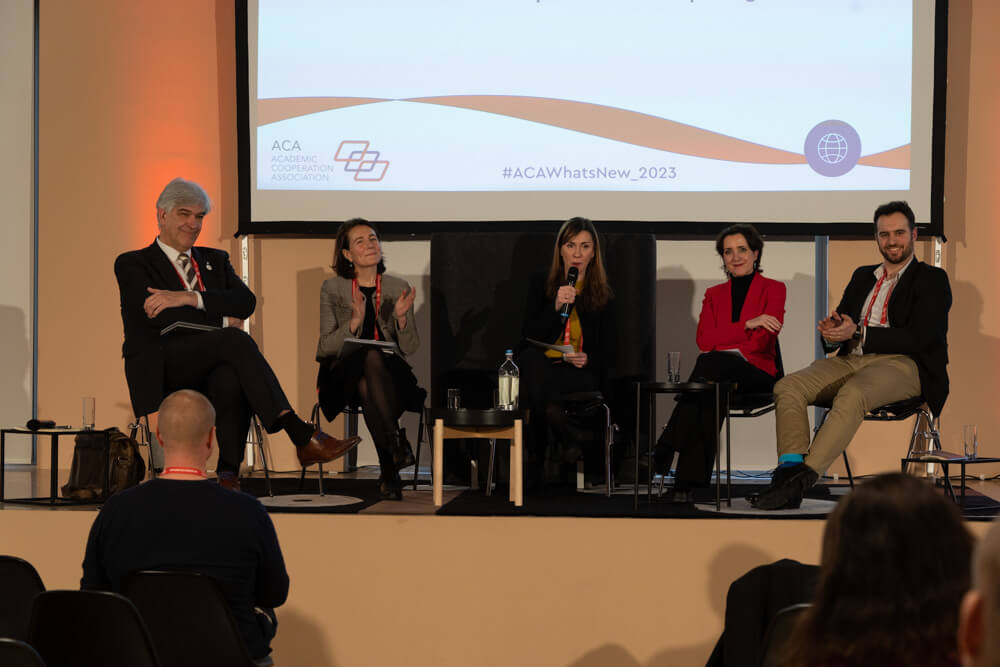Stay in the loop! Subscribe to our mailing list
As usual around this time of the year and finally in the physical format again, ACA conducted its flagship seminar What’s New in Brussels? Latest Developments in European Policies and Programmes. This year's programme focused on the translation of the new Erasmus+ programme priorities and policy trends into the international higher education practice including the opportunities offered under the current Erasmus+ call.
 Given the growing importance and challenges in the global dimension of European higher education cooperation, the first day of the seminar featured the discussions around adapting to new global cooperation realities and existing opportunities for collaboration with Europe’s strategic priority regions – Eastern Partnership, Western Balkans, Sub-Saharan Africa and South Mediterranean. The second day was dedicated to the discussion of European affairs, particularly the evolving funding context at European and national levels, the progress achieved under the key priorities of Erasmus+, and the transformation potential of the European Universities alliances.
Given the growing importance and challenges in the global dimension of European higher education cooperation, the first day of the seminar featured the discussions around adapting to new global cooperation realities and existing opportunities for collaboration with Europe’s strategic priority regions – Eastern Partnership, Western Balkans, Sub-Saharan Africa and South Mediterranean. The second day was dedicated to the discussion of European affairs, particularly the evolving funding context at European and national levels, the progress achieved under the key priorities of Erasmus+, and the transformation potential of the European Universities alliances.
The discussions showed that while openness remains the key feature of the European approach to global cooperation based on the value of open communication channels and people-to-people contacts, more vigilant approaches informed by both values and risks are emerging across Europe. The related national tools have been designed, for example in Germany, the Netherlands and Norway, to provide guidance to the higher education sector. Such guidance can provide not only advise on safety and security issues, but also support partnership-building and adapting of institutional practices to the new realities, whilst institutions still have to build their risk awareness and internal support structures.
 It was further established in the discussion that while opportunities for international collaboration with the Erasmus+ priority regions are growing exponentially, European institutions still need to explore how these international partnerships can support their own strategic objectives on a mutually beneficial basis. This process can be rather intricate for institutions and therefore requires long-term continuity in terms of geographic prioritisation in the Erasmus+ programme.
It was further established in the discussion that while opportunities for international collaboration with the Erasmus+ priority regions are growing exponentially, European institutions still need to explore how these international partnerships can support their own strategic objectives on a mutually beneficial basis. This process can be rather intricate for institutions and therefore requires long-term continuity in terms of geographic prioritisation in the Erasmus+ programme.
The evolving inflation and energy crisis is affecting many students and institutions across Europe already, but the longer-term negative impact is still to be awaited. Universities can build resilience by joining forces under European partnerships and alliances. Securing sustainable support to the European Universities alliances at the EU and national level in the challenging financial context requires a broader dissemination of the achievements and the convincing evidence on the systemic impact of the European Universities Initiative as a whole as compared to the other types of Erasmus+ partnerships.
We are looking forward to continuing these insightful discussions through different fora throughout the year as we prepare for our What’s New in Brussels 2024.
Photos by Martine de Graeve